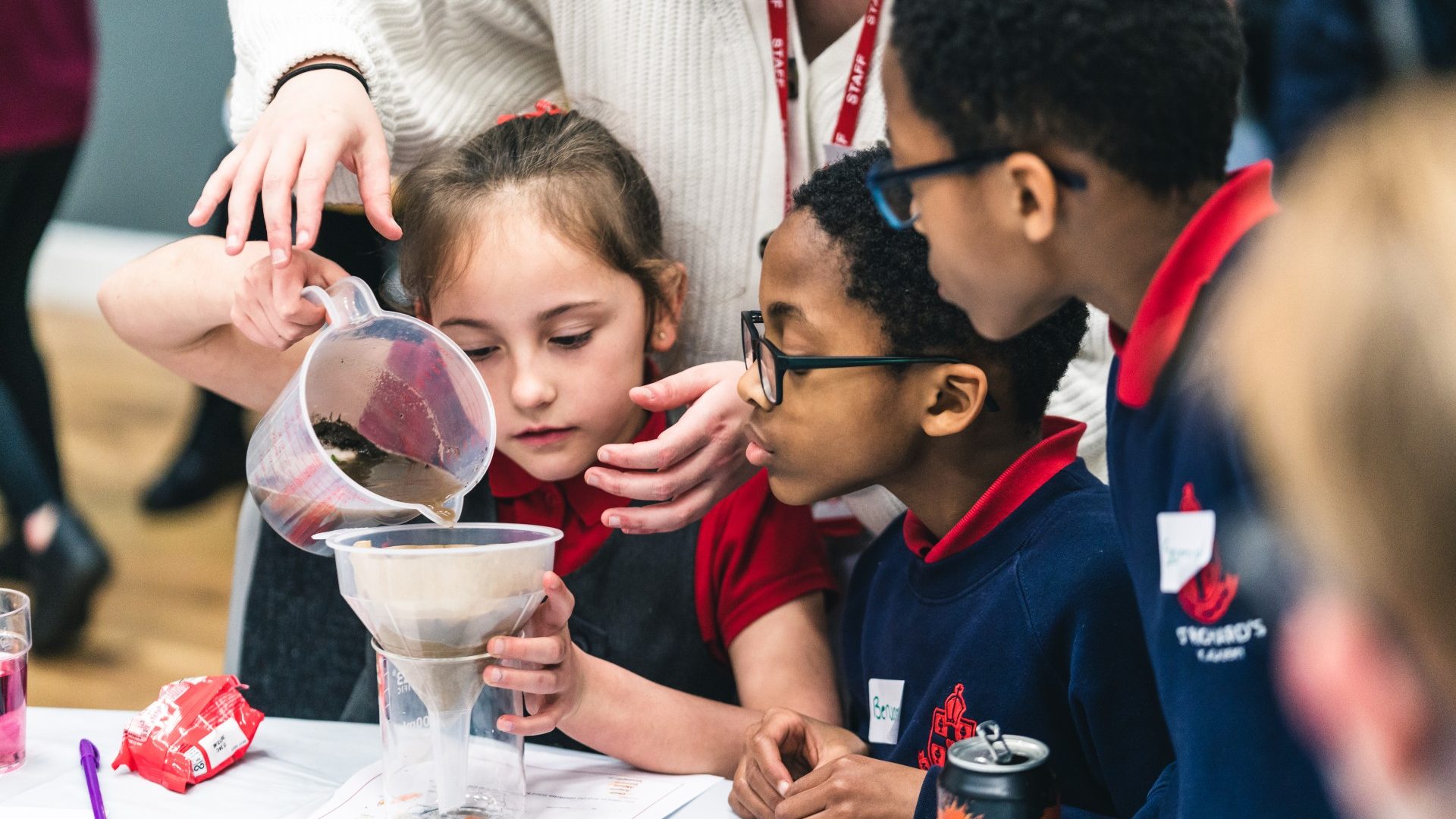
The next 20 years – supporting future generations to reach their potential
IntoUniversity's Director of Development, John Bleasdale, looks ahead at the next 20 years.

IntoUniversity's Director of Development, John Bleasdale, looks ahead at the next 20 years.
Social entrepreneurship is all about seizing opportunities to solve social problems. When Rachel and Hugh decided to launch IntoUniversity 20 years ago, this is exactly what they did. As a result of their ingenuity, and the hard work and support of many incredible people along the way, we have been able to impact the lives of more than 190,000 young people.
I’ve been fortunate to play a part in this journey, having headed up the IntoUniversity fundraising team over the past 5 years. Reading through this report, I’m very proud of the tangible and positive change we’ve been able to achieve for young people across England and Scotland. Having the opportunity to get up each morning and work for an organisation that really makes a positive difference is a privilege we perhaps don’t focus on often enough, but throughout this year as we’ve celebrated our 20th anniversary, it’s been a great opportunity to reflect.
In the same spirit of social entrepreneurship that has taken IntoUniversity so far, we are focused on seizing the next opportunity – to serve a generation who have been left damaged by the pandemic and are further at risk from rising costs, economic hardship and a job market demanding ever greater skills.
With a network of centres in the most disadvantaged neighbourhoods and many more centres in the pipeline, we are uniquely placed to respond to these needs. We’re mindful that we will need to stay agile and continue to adapt to a new set of opportunities and challenges presented by the world, as we support our young people to navigate through their academic journey over the next 20 years and beyond.

In the challenging neighbourhoods where we work, typically 40% of children will grow up in significant poverty. Homes are often overcrowded spaces where young people have nowhere to study, and where devices are shared between siblings. At age 16 many will be two years behind their peers in learning . As few as one in ten will progress to university.
As a result, many families are caught in a vicious cycle, where the disadvantages of one generation are passed onto the next. This creates neighbourhoods where, for decades, poverty and educational underachievement have gone hand in hand.
The pandemic and the cost of living crisis are now making life even tougher. COVID has set back educational progress, the poverty crisis is deepening, and children’s mental health cases are increasing alarmingly. The hill to be climbed is even steeper than before and the work
of IntoUniversity’s centres is more vital than ever.
Whilst our primary aim is to help young people achieve positive post-school outcomes, regardless of whether they choose to apply to university or not, we know that as increased pressures exacerbate educational inequalities, demand for higher education (HE) is set to become even more competitive. The “journey to a million” has been a hot topic in the sector for some time, and UCAS recently reaffirmed its projection that we are likely to see a million students applying to universities by the end of the decade. This is largely driven by an increasing 18-year-old population, which, according to the ONS, could rise to nearly 900,000 by 2030, representing an increase of 200,000 from the
beginning of this decade.
While this is a positive reflection of the perception of HE among students, questions remain about the practical implications of increasing provision, and the impact it could have on student experience. For those of us with a stake in tackling educational inequalities, there are concerns about how this sizable increase in demand could affect efforts to level the playing field for young people from less advantaged backgrounds. In the coming years, this context will be an increasingly important consideration for us as an organisation. We’ll be working with our network of university partners to ensure that our young people get the support and information they need to navigate the challenges and opportunities presented by the shifting HE landscape.
While we’re mindful of the challenges ahead and the need they create for an expansion of our work, we’re also excited about the opportunities the future presents for the young people we work with.
Over the next few years we expect to see significant growth in a number of industries. From digital technologies to green jobs and advanced manufacturing, the young people we start working with today will potentially end up doing jobs that don’t even exist yet. Over recent years, we’ve seen the emergence of disciplines such as ESG and D&I create new roles and areas of focus, and we expect these opportunities to continue to grow going forward. What’s more, the shift to increased remote and flexible working post-pandemic seems to have had a lasting effect on many industries and organisations, opening up jobs to a wider pool of candidates across the whole geographic spread, rather than relying on local talent.
The long-term implications of this on the job market remain to be seen, but could potentially create a much more diverse range of opportunities for students across the entirety of our network, without the need to relocate.
A key part of our development strategy will be to establish and grow relationships with corporate partners from a wider range of sectors, encompassing some of these newly emerging industries, so we can provide our students with information, access and experiential opportunities that expose them to the full spectrum of possibilities.
While we will always adapt our approach to the needs of the day, we still feel strongly that our existing model of place-based support is key. We know there are so many young people who currently need this support but are unable to access it. Our main strategic priority therefore is to expand the impact of our work, with the aim of supporting over 500,000 young people by 2040, with IntoUniversity embedded as a long term presence in the most deprived communities in the UK.
We are very proud of the long-standing partnerships we have with our university, corporate and philanthropic partners, to sustain the work of the charity. With your support, and the same shared tenacity and drive that has defined the last 20 years at IntoUniversity, I believe we can achieve this and more for young people in the years to come.
By 2027, we are aiming to operate 50 learning centres across the UK, serving thousands more young people and communities in need. At this scale we aim to be supporting at least 60,000 young people across our network each year.
Read our full report: A Generation of Transformation – 20 years of IntoUniversity